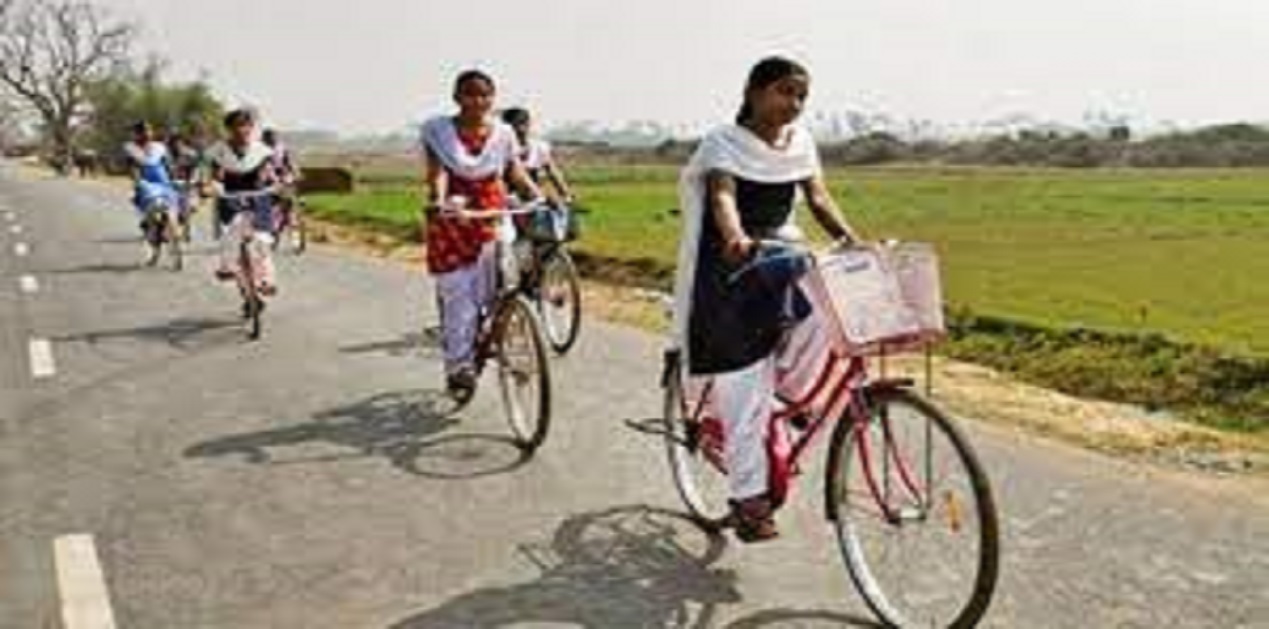Education of women is essential for a just society as well as for accelerating social transformation. Despite significant progress in reducing the gender gap in education, several obstacles still prevent women in developing nations from building up their human capital, such as the cost of education, travel distance, safety concerns, lack of agency, and ingrained cultural barriers. Addressing these gender-specific barriers to the accumulation of human capital is a major policy priority for developing countries because of the high impact education has on women's well-being as well as the growth and development of the nation. The adage "teach a woman, and you teach a nation" captures well the significance of women's education for any society.
Bihar is one of the major states in East India. The state capital of Bihar, Patna, was formerly known as Pataliputra and has long been a prominent centre of Indian culture. Established in the fifth and eighth centuries, respectively, Nalanda and Vikramshila are two educational institutions in Bihar adjacent to Patna that are regarded as some of the earliest international colleges of the time. However, despite having some of the oldest education institutes in the world, after independence, the state fell behind in higher education.
After independence, although the overall literacy rate in every state of India has grown, Bihar continues to rank very poorly. In Bihar, female literacy rates are even lower than male literacy rates, despite several measures taken to rectify the situation. Indeed, a decade ago, the number of school girls, dropping out of the school was an alarming concern for the state government of Bihar.
Fortunately, over the past ten years,Bihar's educational system has improved remarkably. As a matter of fact, between 2001 and 2011, Bihar experienced the most significant increase in the female literacy rate among all Indian states. This is evident from the fact that the number of girls appearing in matric exams has increased from INR 1.87 lakh in 2005 to INR 8.37 lakhs in 2020. One significant driving force behind this development was the "Mukhymantri Balika Cycle Yojana" or Chief Minister’s Bicycle Scheme.
Bihar government launched the scheme sometime in 2006, and it has been continuing till date. As per the scheme, every participating girl in Grade nine or above would receive money to buy a bicycle to commute to school. The major objective of this programme was to stop any girl child from dropping out of school because of the distance to the school. As per the guidelines, each candidate was given INR 2500 (earlier INR 2000) to purchase a cycle. To make sure that the money has been utilized, the candidates were required to submit the purchase receipt at the school office. Any girl student who is a permanent resident of Bihar, attending a school that is either run by or aided by the state government and has successfully passed the final examination of 8th standard and taken admission in 9th standard, can avail this scheme. As per government reports, the state authority has successfully distributed money to 871,000 female students for purchasing cycles. And up to now, the government has spent a whopping INR 174.36 crores on the implementation of the scheme.
The programme's success in the state can be attributed to the fact that it successfully addressed the fundamental problems that many adolescent girls in Bihar state confront, including the dangers associated with going to school by walking, the long walking distances to the schools, and engrained cultural inhibitions that discourage walking to school. The strategy improved female students' attendance rates and reduced their dropout rate by almost 40 per cent. And the scheme inspired several other state governments in India to replicate the model.
Around May 2022, one country from Southern Africa, Zambia, tried to learn from it and started implementing a similar model. And within one year of intervention, they managed to reduce girls' absenteeism by 27 per cent. The average travel time to schools and late school arrivals decreased by 35% and 66%, respectively. Additionally, as per a survey, the bicycle programme helped girls' math test results and gave them a sense of control over their life. Now that they have a more positive self-image, they are aiming higher. Finally, the girls also expressed their desire to wait until a suitable age before getting married and having children. Later, the United Nations also endorsed this concept. And now, six more African countries have started implementing similar projects.
For the transformation of any society, it is important to promote girls' education. Girls who complete their education are more likely to have long, happy lives and are less likely to get married young. They improve their own life, get financially independent by earning and increasingly take part in decisions that directly impact them. Education for girls boosts economies and lowers gender inequality. It promotes the development of more stable, robust societies where all people, including men, can realise their full potential. However, educating girls involves more than just enrolling them in classes. Girls also need to feel safe. Therefore, a scheme like 'Mukhyamantri Balika Cycle Yojana' raised the educational status of women not just in Bihar but also in distant African nations, creating a positive impact.
(The paper is the author’s individual scholastic articulation. The author certifies that the article/paper is original in content, unpublished and it has not been submitted for publication/web upload elsewhere, and that the facts and figures quoted are duly referenced, as needed, and are believed to be correct). (The paper does not necessarily represent the organisational stance... More >>
Image Source: https://images.tv9hindi.com/wp-content/uploads/2022/10/Bihar-School-.jpg?w=1200











Post new comment